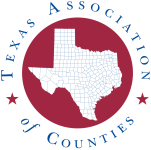Publications
Guidance from TAC on KP-0411
KP-0411: Elections & the Public Information Act
Attorney general opinion KP-0411, issued Aug. 17, 2022, will impact county election officials' ability to conduct elections in an efficient manner while simultaneously having to comply with public information requests to view voted ballots just after an election has concluded. Click on each section heading to expand.
The question of when the public may have access to review voted ballots had been settled in elections administration for over 30 years. In Tex. Att'y Gen. ORD-505(1988), the Attorney General determined voted ballots of an election were public information but exempt from public inspection during the statutorily mandated preservation period. At the conclusion of the preservation period, the voted ballots would become available for public inspection both under the Public Information Act and Section 1.012 of the Texas Election Code (the "Code") under which all election records are public information except as otherwise provided by the Code or the Texas Public Information Act.[1]
The rationale of the original opinion was that precinct election records, which include voted ballots, are required to be preserved for twenty-two months following the election.[2] Texas Election Code Section 66.058(b-1) requires that a ballot box or secure container containing voted ballots not be opened during this period except as permitted by the Election Code. Recounts, election contests, partial manual counts, and court ordered entry to retrieve erroneously placed records are examples in which the general custodian of election records[3] is expressly authorized to enter a ballot box or secure container with voted ballots during the preservation period. Compliance with a public information request is not an expressly authorized reason to enter the boxes during the preservation period; however, after the twenty-two-month period has ended and a request to review the voted ballots is received prior to their destruction, the 66.058(b-1) prohibition no longer applies, and the county must comply with the outstanding request before being able to destroy the voted ballots of an election.
On Aug. 17, 2022, the Attorney General issued a new opinion, KP-0411, which overrules ORD-505 and suggests the public has a right of access to voted ballots during rather than after the statutorily mandated preservation period. We note that there were no substantive changes in the law concerning preservation of election records between the issuance of ORD-505 and the new opinion. We also note the Texas Secretary of State submitted a letter to the Attorney General in which it urged him to uphold the prior interpretation of law.[4]
KP-0411 represents the Attorney General's opinion on the proper interplay between the requirements of the Public Information Act and the Election Code's right of access to public information and state and federal requirements of maintaining ballots securely after the completion of the election.
The Attorney General opines in KP-0411 that compliance with a request under the Public Information Act is an authorized ground for entry into the locked ballot boxes and secured containers containing voted ballots. Because it is an authorized ground, the boxes and containers with voted ballots may be opened multiple times during the preservation period as necessary to comply with the request. The Attorney General also states that the access is specific to "anonymous voted ballots."
The opinion provides that the general custodian of election records and the Secretary of State both may establish procedures to accomplish the twin priorities of maintaining security of the voted ballots and providing the required public access.[5] The Attorney General does not provide guidance on how general custodians of election records are meant to accomplish these simultaneous goals.
We understand that while the Secretary of State may offer guidance on how to maintain the security of the voted ballots and other records, they likely will defer to the Attorney General on issues concerning compliance with the Public Information Act.
Counties are already facing a deluge of requests for records from the 2020 general and primary elections as their preservation period came to an end on Sept. 4, 2022. In the weeks since the issuance of KP-0411, such requests have increased. County election official expect to receive requests to review voted ballots for the November 2022 general election immediately after that election.
County election officials have expressed concerns with the potential impact of KP-0411 on handling requests to view election records for the November 2022 general election for state and county officers and beyond. Those counties who have already had to comply with requests to review all the voted ballots for the 2020 election have anecdotally reported costs for providing floor space and additional hours for elections personnel (at a time when they are also preparing for an upcoming election) to be present while the ballots are reviewed to maintain ballot security. Potential costs would obviously vary by size of county and by the number of requests to review the ballots that could not be accommodated at individual sessions. If post-election review of voted ballots, effectively in the form of unofficial election recounts, become a common occurrence, counties may have to address the additional costs in their election budgets.
- Texas Gov't Code Ann. §552.001 et. sec.
- Tex. Elec. Code Ann. §66.058(a).
- For elections ordered by the governor, a county authority, or primary elections, the general custodian of election records is the county clerk or the county election administrator. Tex. Elec. Code Ann. §66.001(1).
- September 30, 2021 letter from Adam Bitter, General Counsel, Office of Texas Secretary of State, to Ken Paxton: "The voted ballots are the core of the election process and the prohibition on disturbing the ballots (except in limited circumstances as permitted by the Election Code) preserves the integrity of the election itself. Handling of the voted ballots themselves opens up the possibility of accidental or intentional damage or misplacement that could call into question the election after the fact."
- KP-0411 at pg. 4.
- Tex. Gov't Code Ann. §552.221(d).
- Id. §552.225.
- Tex. Elec Code Ann. §31.100(c).


